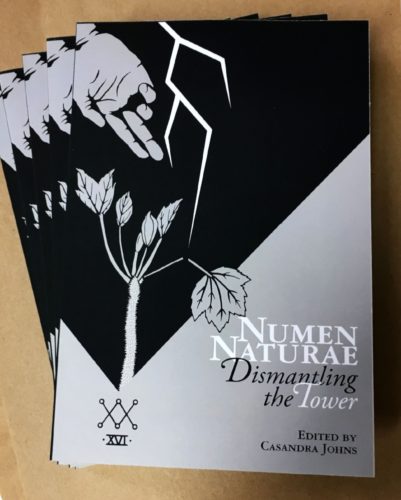This is an excerpt from my Master’s thesis titled “Erotic Embodiment and Integration of Soul, Spirit, and Body: Toward a Sacred Erotic Psychology Healing Praxis,” it is a piece from the Introduction
To say it is difficult to write about embodiment is an understatement. Writing is a tool of the mind and splits us off from bodily experience. Language cannot fully capture the essence of being embodied, of being in a body, or of bodily sensations and emotions, but it can try. For the most part, language brings us out of our bodies and puts us apart from ourselves, especially language in an academic framework where one is compelled to be aware of sentence structure, word choice, proper citation methods, and so on. The question of how I can write an academic work on embodiment is one I have been grappling with since before I began writing it. The language that most closely aligns with the body is imaginal and poetic. With exception of the praxis chapter, my use of poetic imaginal language has been limited. I have not engaged with the imaginal and poetic nearly enough. Here is an attempt.
I really value each of the realms of spirit, soul, and body and the various ways they each manifest in the world, and I know that of these three realms the body is the most denigrated. This culture has a body problem. It has a problem in all three realms, really, but the way we approach the body is so much more backwards and twisted in my experience. We do everything we can to avoid focusing on our bodies, and that includes me. I have spent a lot of my own life hating my body, treating it as separate from my essential self, or ignoring its needs, feelings, and warnings.
My body has stiffened from the chore of sitting in front of a computer, writing (or attempting to write), while fighting against all the internal blocks I have against doing this work, my work. I can feel it in my shoulders and the back of my neck in the tension that creeps its way up and down from my head to my lower back. I get hit with it when I stretch, arching my back to hear the cacophony of crunchy popping sounds as my vertebrae realign themselves, and suddenly the release of tension sends a momentary throbbing spiraling up all the way to my temples. I can feel it in my knees and hips, the way I hold myself as I walk, where on my feet I place emphasis. I can tell when I am resisting the process and when I am not coming to my work with all of my strength by the way that I sit, passively and slouched or tall and engaged. I can feel it in how I am holding my teeth and tongue, the crack of my jaw when I yawn, the bend of my left knee when I take a step (am I fully bending it, or dragging that foot as I move?), or the pop of my right ankle when I get a twinge or stiffness in it that needs to be rotated out. My body tells me things, and I choose to listen to it or not, though the more I do this work the less I can ignore it. I notice the tension, I breathe, I move.
I do not claim to be perfect at my own methods, or to have mastered embracing the theories and praxis described in this thesis. In fact, what is driving me to do the work that I am dedicated to doing in the world, the work that this thesis is but a fraction of, is my own struggles with embodiment, connection, and belonging. I have been experiencing my own process as I have been writing about it, articulating only as far as I have been able to traverse my own self. Thus through this process I have had to feel my way through it just as much as I have had to work my way through it. I have had to nurture my own self, to build up the strength and self-love and self-compassion. To bring awareness to the things that I do, conscious and unconscious, and the patterns that I am enacting and reenacting within myself and with my lovers, friends, and family. I have gone through some major shifts and realizations within myself through this process, and also know that it is not over. This is just the beginning.
In going through this process of embracing my emotions and letting them flow, of excavating my own shadow and my own past, of working to understand the patterns laid inside of me back in the time of childhood and pre-verbal processing that still run me, of attempting to experience exquisite embodiment of the Self that is called Tai in this incarnation, I have had to confront most if not all of the parts of myself that keep me back. My self-sabotage. As with everyone, all of my issues are interlocking, threads in the tapestry of my life that interact and intersect, not just discrete problems that can be approached completely independently of each other. I have had to face head-on my own fear, grief, shame, anger, some nasty patterns of internalized oppression and repression. I have had to confront my fear of taking up my own space and what it looks like to put something so large as a personal sacred erotic manifesto into the world. This work details the entirety (so far) of my life’s purpose and my understanding of spirituality, sexuality, psychology, and their interactions with each other, and I am really taking up my own space by declaring my own mastery of it. I have also had to process and move through the grief I experienced surrounding the very sudden death of my father, and the emotional and psychological patterns instilled in me generationally and personally through him. I have recognized the shame I have held on to around being my true authentic self in a society that reviles people like me in multiple intersections of my identity. I have had moments of intense jealousy and shame around my relationship with my primary partner, and due to our interlocking patterns around intimacy and attraction we have, on occasion, fallen down the rabbit hole of destructive behavior.
Shame has been a large factor in my excavation process, and shame is necessary to face when doing this work. Emotions are necessary to face when doing this work of the body. To this end the work of Brene Brown and Karla McLaren have been indispensable to me. I have realized the amount of emotion processing that goes on in the face of change, and know that is a vital aspect of becoming. All emotions are particularly powerful, necessary, and important. They each have a reason for coming up when they do and a particular purpose or gift to share with us, if we are open to them. This entire thesis process has been an emotional one, and has impacted my body as such.

